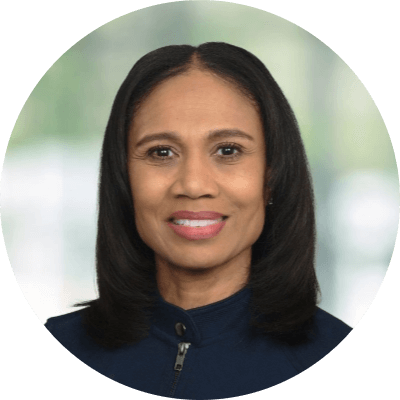Training to Achieve Your Personal Best

Like millions of people around the world, I was captivated by the Paris Summer Olympic Games. I love sports, but the Olympic competitions are even more exciting. I watched Simone Biles, Katie Ledecky, Stephen Nedoroscik, Gabby Thomas, Cole Hocker, and many others exhibit what looked like supernatural abilities. However, none of these athletes have superpowers. They have raw talent, but it takes more than natural skill to become an Olympian. Top athletes train rigorously to advance their abilities. They hire the best coaches in their sport and are fiercely devoted to training regimens.
Skill Requirements Are Changing
While I’m not trying to reach the top pinnacle of a sport, I am committed to being the best I can be through growth and development in all areas of my life. Our pursuit of learning should never end, whether it's expanding knowledge, sharpening skills, or developing new ones. We can’t afford to be complacent. Rapid changes driven by technological, economic, social, educational, legal, and political factors are impacting our work and personal environments. According to the latest Future of Jobs Report from the World Economic Forum, 44% of workers' skills will be disrupted in the next five years and six in 10 will require training before 2027 (Source: weforum.org). As job roles and skill requirements change, more workers will need to learn new skills and enhance their existing skills to stay current with innovation and market demands.
Rethinking Soft Skills
In the past, soft skills have been misunderstood and underestimated. The word “soft” preceding “skills” sounds warm and fuzzy. It is often used interchangeably with interpersonal, social, and people skills — and there is no consensus around the meaning of these concepts. Unlike IQ, which evaluates intellectual abilities, these skills are not easily measurable or quantifiable. Nonetheless, soft skills are intrapersonal (within) and interpersonal (between others) abilities and behaviors at the core of how work is performed and the interaction with others (Source: td.org).
These skills significantly influence the ability to:
- Convey clear and compelling messages.
- Resolve issues within a team.
- Delegate tasks.
- Understand others’ perspectives.
- Remain calm during conflict.
- Adapt to changing conditions.
- Use active and reflective listening.
Companies across various industries have reported a soft skills gap in the workforce, largely due to the rise of artificial intelligence and other technologies. Some of the most valuable skills cannot be replicated by robots and machines. People are better at tasks that require flexibility, judgment, empathy, and reasoning. According to the World Bank Group, advanced cognitive, social, and adaptability are the three critical skills needed in this 21st century.
Adopting an Athlete’s Mindset
Whether you’re a veteran or at the beginning of your career, continuous learning and development is an indispensable tool. It keeps you relevant, boosts confidence, and improves resilience, adaptability, and cognitive function. It’s easy to lose ground in this environment of accelerating change if you are not continuously growing. Existing skills can weaken if they remain idle for too long or become obsolete.
Growth and development can be achieved by adopting the mindset of an athlete.
- Establish SMART goals (specific, measurable, attainable, relevant, and time-bound).
- Create a plan for expanding knowledge and skills.
- Develop habits that support learning goals.
- Utilize your organization’s training resources, formal education, mentorships, books, professional organizations, and online training such as Attigo SmartSessions.
Athletes train to perform at the highest level — and you can too. With continuous learning and development, you can achieve your personal best. Our Attigo suite of solutions provides learning resources designed to meet your needs. SmartSessions are free online training on a variety of topics and By-Request Training offers individualized training for a nominal fee.
ABOUT THE AUTHOR

Tasha McDaniel
Senior Trainer - Tasha has over 30 years of experience in learning and development, higher education, and student loan sales. She has a Master of Public Administration degree and an extensive background in creating and delivering training programs to support physical, mental, and financial well-being. She is an Accredited Financial Counselor with the Association of Financial Counseling and Planning Education (AFCPE) and a certified Health Coach and Behavior Change Specialist with the American Council on Exercise (ACE).